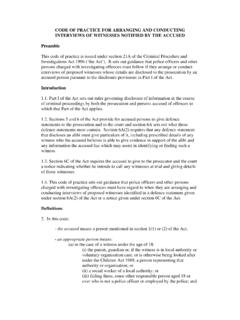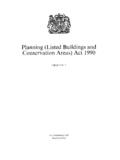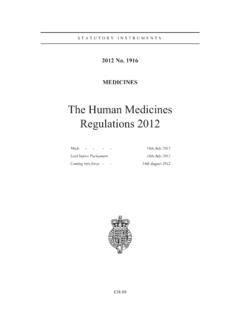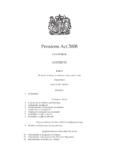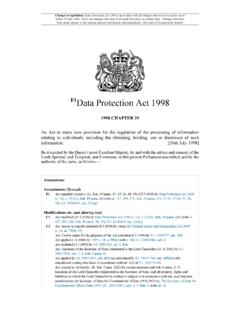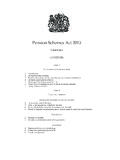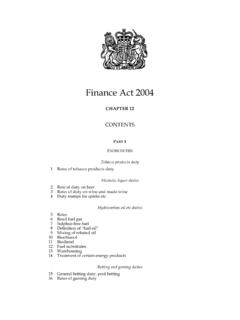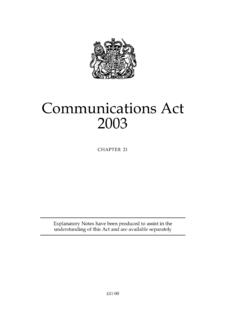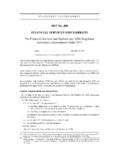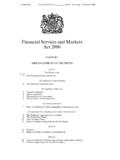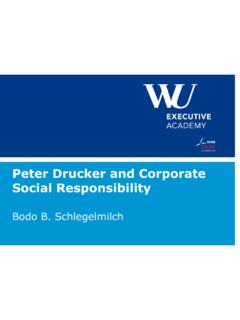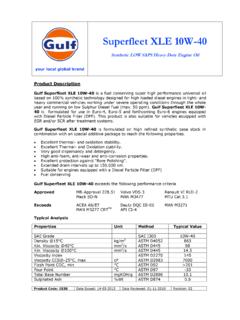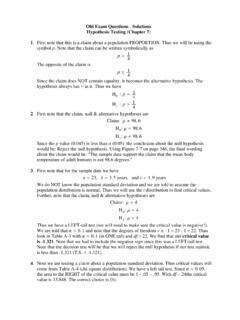Transcription of 2014 No. 1530 EDUCATION - legislation
1 S T A T U T O R Y I N S T R U M E N T S 2014 No. 1530 EDUCATION The special educational needs and disability regulations 2014 Made - - - - 4th June 2014 Laid before Parliament 11th June 2014 Coming into force - - 1st September 2014 The Secretary of State makes the following regulations , in exercise of the powers conferred by sections 30(8) and(9), 34(6), 36(11), 37(4), 41(5), 44(7), 45(5), 46(2), 47(1) and (2), 51(4), 56(1), 67(3), 69(3)(a), and 80(1) of the Children and Families Act 2014(a): PART 1 Introduction Citation and commencement 1. These regulations may be cited as the special educational needs and disability regulations 2014 and come into force on 1st September 2014.
2 Interpretation 2. (1) In these regulations (b) the Act means the Children and Families Act 2014; the appropriate authority means (a) in relation to a community, foundation or voluntary school(c) or a maintained nursery school(d), the governing body of the school; and (b) in relation to an Academy school(e), the proprietor; educational institution means a school or post-16 institution; health care professional means an individual who is a member of a profession regulated by a body mentioned in section 25(3) of the National Health Service Reform and Health Care Professions Act 2002(f); (a) 2014 (b) The definitions in the Act are applied throughout these regulations .
3 (c) Community, foundation and voluntary school have the same meaning as in section 20 of the School Standards and Framework Act 1998 ( ) ( the 1998 Act ) (d) Maintained nursery school has the meaning given by section 22(9) of the 1998 Act (e) Academy school has the meaning given in section 1A of the Academies Act 2010 ( ). Section 1A was inserted by section 53(7) of the EDUCATION Act 2011 ( ) ( the 2011 Act ) (f) 2002 2 infant school means a primary school for the purpose of providing EDUCATION for children who are of compulsory school age but have not attained the age of eight, even though it may also provide EDUCATION for children below compulsory school age; junior school means a primary school for the purpose of providing EDUCATION for children who are of compulsory school age who have attained the age of eight; relevant school means a mainstream school or a maintained nursery school; responsible commissioning body has the meaning given in section 42(4) of the Act.
4 The SENCO , in relation to a relevant school, means the person who has been designated to be the special educational needs co-ordinator for the school by the appropriate authority in accordance with section 67 of the Act; transfer between phases of EDUCATION means a transfer from (a) relevant early years EDUCATION to school; (b) infant school to junior school; (c) primary school to middle school; (d) primary school to secondary school; (e) middle school to secondary school; or (f) secondary school(a) to a post-16 institution; year 9 means the year of compulsory schooling in which the majority of pupils in the class attain the age of 14. (2) Preparation for adulthood and independent living includes preparation relating to (a) finding employment; (b) obtaining accommodation; (c) participation in society.
5 PART 2 Children and young people with special educational needs Assessments Consideration of request 3. A local authority must consult the child s parent or the young person as soon as practicable after (a) receiving a request for an EHC needs assessment under section 36(1) of the Act, or (b) becoming responsible for the child or young person in accordance with section 24 of the Act, before determining whether it may be necessary for special educational provision to be made in accordance with an EHC plan for the child or young person. Determination whether or not special educational provision may be necessary 4. (1) Where a local authority determines that it is not necessary for special educational provision to be made in accordance with an EHC plan it must notify the child s parent or the young person in accordance with section 36(5) of the Act as soon as practicable, but in any event within 6 weeks of (a) Primary school, middle school and secondary school have the meaning in section 5 of the EDUCATION Act 1996 ( ) ( the 1996 Act ).
6 3 (a) receiving a request for an EHC needs assessment under section 36(1) of the Act, or (b) becoming responsible for the child or young person in accordance with section 24 of the Act. (2) Where the local authority is considering securing an EHC needs assessment it must also notify (a) the responsible commissioning body; (b) the officers of the local authority who exercise the local authority s social services functions for children or young people with special educational needs ; (c) in relation to a child (i) if the child is a registered pupil(a) at a school, the head teacher of that school (or the person holding the equivalent position), or (ii) if the child receives EDUCATION from a provider of relevant early years EDUCATION , the person identified as having responsibility for special educational needs (if any) in relation to that provider.
7 And (d) in relation to a young person (i) if the young person is a registered pupil at a school, the head teacher of that school (or the person holding the equivalent position), or (ii) if the young person is a student at a post-16 institution, to the principal of that institution (or the person holding the equivalent position). Decision whether or not to conduct an EHC needs assessment 5. (1) The local authority must notify the child s parent or the young person as soon as practicable and in any event within 6 weeks of (a) receiving a request for an assessment under section 36(1) of the Act, or (b) becoming responsible for the child or young person in accordance with section 24 of the Act of its decision whether or not it is necessary to secure an EHC needs assessment for the child or young person.
8 (2) The local authority must also notify the persons who were notified in accordance with regulation 4(2) of its decision. (3) When notifying the child s parent or the young person of its decision that it is not necessary to secure an EHC needs assessment for the child or young person, it must also notify them of (a) their right to appeal that decision; (b) the time limits for doing so; (c) the information concerning mediation, set out in regulation 32; and (d) the availability of (i) disagreement resolution services; and (ii) information and advice about matters relating to the special educational needs of children and young people. (4) The local authority need not comply with the time limit referred to in paragraph (1) if it is impractical to do so because (a) the local authority has requested advice from the head teacher or principal of a school or post-16 institution during a period beginning one week before any date on which that school or institution was closed for a continuous period of not less than 4 weeks from that date and ending one week before the date on which it re-opens.
9 (a) Pupil has the meaning in section 3 of the 1996 Act 4 (b) the authority has requested advice from the person identified as having responsibility for special educational needs (if any), in relation to, or other person responsible for, a child s EDUCATION at a provider of relevant early years EDUCATION during a period beginning one week before any date on which that provider was closed for a continuous period of not less than 4 weeks from that date and ending one week before the date on which it re-opens; (c) exceptional personal circumstances affect the child, the child s parent, or the young person during the time period referred to in paragraph (1); or (d) the child, the child s parent, or the young person, are absent from the area of the authority for a continuous period of not less than 4 weeks during the time period referred to in paragraph (1).
10 Information and advice to be obtained of EHC needs Assessments 6. (1) Where the local authority secures an EHC needs assessment for a child or young person, it must seek the following advice and information, on the needs of the child or young person, and what provision may be required to meet such needs and the outcomes that are intended to be achieved by the child or young person receiving that provision (a) advice and information from the child s parent or the young person; (b) educational advice and information (i) from the head teacher or principal of the school or post-16 or other institution that the child or young person is attending, or (ii) where this is not available, from a person who the local authority is satisfied has experience of teaching children or young people with special educational needs , or knowledge of the differing provision which may be called for in different cases to meet those needs , or (iii) if the child or young person is not currently attending a school or post-16 or other institution and advice cannot be obtained under sub-paragraph (ii)
